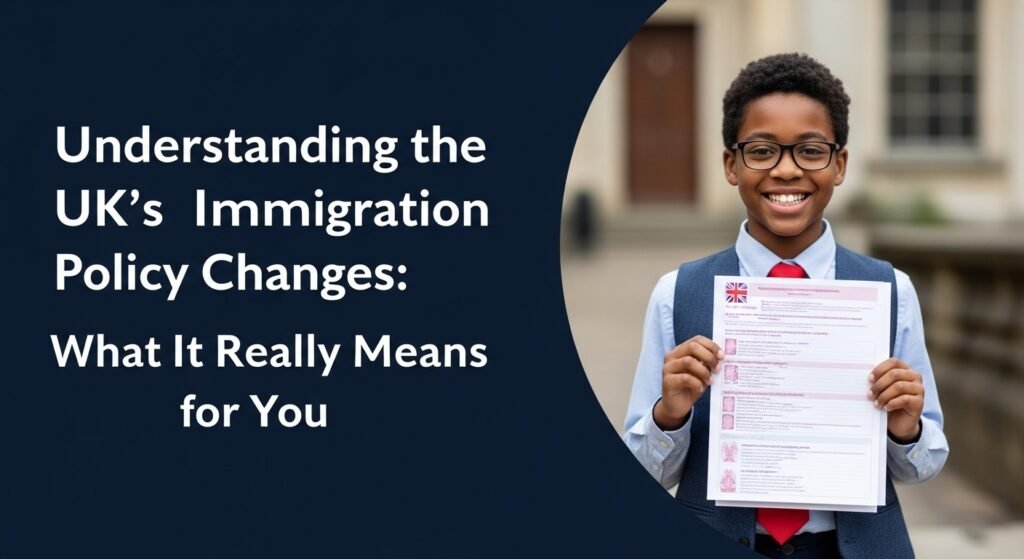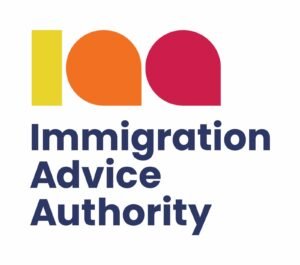
Immigration in the UK has always been an interesting topic and even more so in recent years. If you’re an immigrant living in the UK or planning to move, you’ve likely heard about the new immigration changes proposed by the UK government. These changes have raised concerns, confusion, and in some cases, fear. But what’s really going on? Why is the government making these moves, and how will it impact your future?
In this post, we’ll break everything down for you and what you need to stay prepared.
What Is the Government Saying About Immigration?
Let’s get one thing straight: the UK government is not trying to create panic or hostility toward immigrants. However, the government t is becoming increasingly concerned about the rapid rise in the number of immigrants particularly between 2020 and mid-2024.
The latest data shows record-high net migration figures, which means that more people are coming into the country than leaving. As a result, the government is making immigration a top priority, with new policies aimed at:
- Controlling the borders more tightly
- Reducing the overall number of migrants
- Discouraging low-skilled immigration
- Attracting high-value individuals who can bring in advanced skills, innovation, and long-term economic benefits
This new policy is being rolled out through a white paper proposal that outlines the UK’s updated immigration framework and direction for the next few years.
Why Is the Government Doing This? (The Real, Honest Reason)
The truth is it’s not just about border control. There’s a deeper reason behind these policies, and it boils down to both economic and political factors.
- Economic Factors
With increasing migration comes increasing pressure on public services which includes housing, the NHS, education, social welfare, and infrastructure. The government believes that by reducing the number of low-skilled or non-economically active migrants, it can:
- Control public spending
- Free up resources for citizens and legal residents
- Ensure that immigration contributes directly to *economic growth*, rather than increasing dependency on public services
- Political Factors
Every ruling party wants their administration leave a lasting impact, especially on an issue like immigration. With rising public concern about the number of immigrants entering the UK, the government wants to be seen as responsive and in control.
The increase in net migration has sparked debates not only within the ruling party but also with opposition parties. These new immigration proposals are a strategic way for the government to present itself as serious about managing the country’s economic growth while prioritizing national interest.
What Does This Mean for You?
This is where it gets personal. The new rules will affect different groups in different ways — students, skilled workers, families, and dependants.
Here’s what you need to know:
1. English Language Requirement for All Applicants and Dependants
All new immigration applicants, including spouses, children (above a certain age), and other dependants will now be required to take and pass a mandatory English language test. This applies across most visa categories, and it’s part of a broader plan to ensure integration and better communication within society.
2. Switching from Graduate Visa to Skilled Worker Visa
If you’re currently on a graduate visa and hope to switch to a Skilled Worker visa, here’s what’s new:
- You must work with your sponsor employer for at least 3 months before they can issue you a Certificate of Sponsorship (CoS).
- Employers are under stricter scrutiny and must show genuine employment relationships.
3. Social Care Visa Changes
The Social Care visa route is now closed to new applicants from overseas. However, if you’re already in the UK on a social care visa, you can remain and work until 2028.
4. Changes to Post-Study Work Visa (Graduate Route)
If you’re a current or prospective international student in the UK, note that the graduate Route (post-study work visa) has been cut from 2 years to 18 months. To be eligible, you must complete your degree and settle all tuition and fee obligations. Your best bet is to plan your career goals early during your study. 18 months goes by fast, ensure to network, apply for jobs, and consider applying for a Skilled Worker visa before your time runs out.
5. Changes to Indefinite Leave to Remain (ILR)
The path to settlement has gotten tougher. Standard ILR is now granted after 10 years of continuous residency (previously 5 years). However, exceptions apply to highly skilled workers in key economic sectors who may still be eligible after 5 years, especially if earning high salaries and making strong economic contributions.
What Should You Do Now?
- Check your visa category and understand how the new rules apply to you.
- Speak to your employer or university advisor to plan your next steps.
- If you are planning to travel to the UK, start preparing for the English language test if required.
- Consult with an immigration advisor or solicitor to explore your best options.
These policy changes are part of a larger shift toward a more controlled, economically focused immigration system. Whether you’re a student, professional, or current visa holder, it’s important to stay informed, plan ahead, and take action early.
Change can be difficult, but with the right information and preparation, you can navigate this transition with clarity and confidence.
Do You Need Help Understanding Your Immigration Options?
We’re here to help. Whether you’re trying to switch visas, apply for ILR, or figure out your next step don’t walk through this process alone. Book a consultation with us to get connected today!










